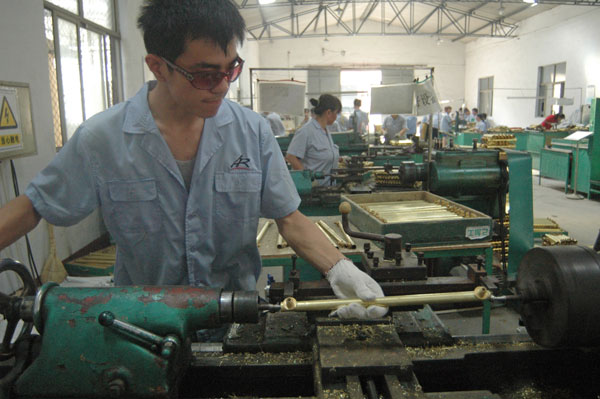Abe's upcoming statement to disappoint neighbors if owing apology
Updated: 2015-08-07 17:14
(Xinhua)
|
|||||||||||
BEIJING - Japanese Prime Minister Abe Shinzo is expected to issue a statement next week to mark the 70th anniversary of World War II on the basis of a report compiled by his advisors.
The 38-page document, written by an advisory panel to the prime minister, has covered an array of issues on the closely-watched statement, but is meticulously avoiding using the term "apology."
If Abe insists on keeping the rhetoric of the report in his statement, Japan will certainly be further alienated by its neighbors and the tension in the region will be exacerbated.
Many Asian countries have shown their concerns that Abe's statement, perhaps one of the most important government statements on WWII since his predecessor Tomiichi Murayama's speech in 1995, will dilute past official apologies.
Abe, a historical revisionist, has reiterated that he would follow the Murayama Statement as a whole but would not repeat such words as "heartfelt apology" or "aggression and colonial rule" in his war anniversary statement since he maintained there is no universal definition for "aggression."
If an apology is absent from the statement, the whole statement would mean nothing to the victims of Japan's atrocities 70 years ago, because apologizing is the only right attitude for Japan in regard to its war past.
To dodge an apology reveals the dangerous attempts of Abe and his ultra-rightist cabinet to distort historical facts for their own interests, namely, pushing their rightist agenda for personal political gains.
In fact, Abe and his government have relentlessly been pushing bills and making extravagant campaigns so that Japan can become a "normal country" and have the right to collective self-defense to bolster the declining US power in the region.
In addition, as Abe's advisors wrote in their report, Tokyo also tries to beautify Japan's aggressive war as a war for Asia's liberation.
"To be sure, many nations in Asia gained independence as a result of the Japanese war from the 1930s up to 1945," the report said.
Instead of apologizing to the victims of its brutal wars, the Japanese government is implying that Asian countries own it a thank-you for liberating them from Western imperialism.
Such a ludicrous notion is derived from the Abe government's dubious reflection on WWII, which lacks sincerity and basic respect for history.
If Japan really wants to turn into "a country that is completely different from what it was in the first half of the 20th century," as the report said, it is advisable that Tokyo acknowledge its mistakes in the past and reconfirm its commitment to regional peace and stability. Abe's upcoming statement offers a good opportunity.
Related Stories
S. Korea urges Abe to inherit right historical perception 2015-08-03 18:13
Abe builds up 'China threat' in support of bills 2015-08-03 08:07
US surveillance of Japan blow to Abe government 2015-08-03 08:06
Abe builds up 'China threat' in support of bills 2015-08-03 07:36
Abe's mudslinging only sticks to him 2015-07-30 08:02
Abe is leading Japan further away from peace 2015-07-27 08:51
Today's Top News
China rejects Philippine, Japanese, US claims on S. China Sea issue
MH370 passengers' families want more answers
'New Suez Canal' opened for ship traffic
Trump won't rule out third-party run
China asks further probe into MH370
China's property taxes coming soon
Seven arrested for trafficking women into sex slavery in China
ROK's ex-first lady begins
DPRK visit
Hot Topics
Lunar probe , China growth forecasts, Emission rules get tougher, China seen through 'colored lens', International board,
Editor's Picks

|

|

|

|

|

|






